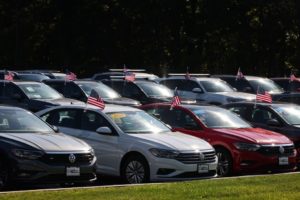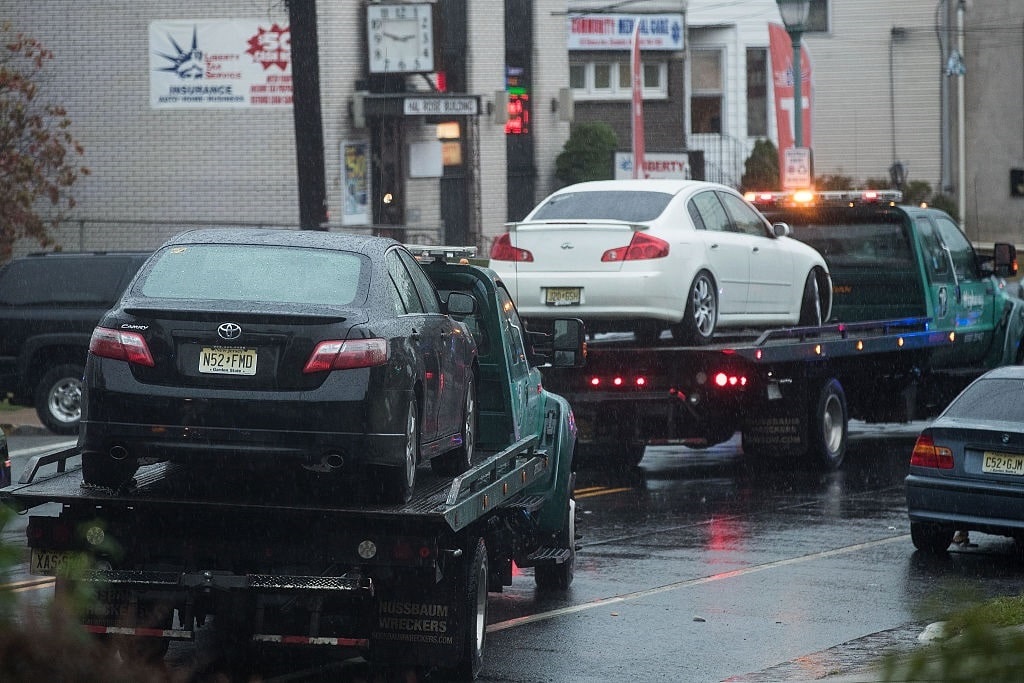Investment fund manager Cathie Wood and billionaire CEO Elon Musk have warned about a brewing crisis forming in the automobile industry, which could have enormous consequences for the broader US economy. From the number of car repossessions to a surge in auto loan debt, the pain emanating from higher interest rates and the state-induced car market transformation could be felt in this economic sector in the coming years.
The Next Big Thing: Car Repossessions
 In the third quarter of 2022, there was approximately $1.52 trillion in auto loan debt, climbing $81 billion year-over-year. The Federal Reserve Bank of New York’s (FRBNY) Household Debt and Credit Report further revealed that the flow into serious delinquency – 90 days or more – reached 3.69%, up from 3.24% in Q3 2021. As economists from the regional central bank warned in August, the days of “historically low delinquency rates [are] coming to an end.”
In the third quarter of 2022, there was approximately $1.52 trillion in auto loan debt, climbing $81 billion year-over-year. The Federal Reserve Bank of New York’s (FRBNY) Household Debt and Credit Report further revealed that the flow into serious delinquency – 90 days or more – reached 3.69%, up from 3.24% in Q3 2021. As economists from the regional central bank warned in August, the days of “historically low delinquency rates [are] coming to an end.”
In recent months, as the US central bank tightened credit conditions, the number of consumers falling behind on their car payments has increased, according to new data from ratings agency Fitch. This problem has largely been avoided over the last couple of years, thanks to federal and state stimulus checks and easy money policies. Now that the marketplace is experiencing a series of changes, auto loan default rates are gradually returning to pre-pandemic levels.
This is comparable to November data from TransUnion that found 200,000 borrowers who took advantage of the pandemic-era auto loan accommodation programs were listed as 60 days delinquent.
Fitch analysts purported in their Global Economic Outlook that subprime borrowers are at greater risk than others, primarily because they “are more vulnerable to wage erosion and affordability concerns in the face of the softening global economy.”
Rampant price inflation and higher rates have made it more difficult for households to cover their monthly car payments. Since 2019, the average month-to-month cost has jumped 26% to $718 per month. For new buyers, one in six is spending more than $1,000 a month on vehicles, in addition to other costly auto ownership factors, such as gasoline (+10.1%), insurance (+13.4%), maintenance service (+9.3%), and repairs (+15%).
In fact, a recent report from the American Automobile Association (AAA) suggested that the average annual cost of owning a new car (loan interest, depreciation, fees, and other aspects) is nearly $11,000.

(Photo by Steve Pfost/Newsday RM via Getty Images)
Industry observers note that many Americans could afford a $600-a-month payment two years ago when the annual inflation rate was lower. Now that the cost-of-living crisis is entrenched throughout the entire economy, every other expense is eating away at families’ budgets. Market experts have also revealed that lenders are paying car repossession companies top dollar to reclaim borrowers’ cars, adding that the trend is not slowing down.
“The volume is picking up, and the remaining companies that are still performing repossessions are very busy,” Jeremy Cross, the president of International Recovery Systems in Pennsylvania, told NBC News. “The overall numbers are still not pre-pandemic numbers, but we will see a big change coming in ‘23 and ‘24 that I think the lenders are starting to recognize because they are offering financial incentives that they never had to do in the past. They’re jockeying for position knowing that there’s only a certain amount of bandwidth available.”
Over the next 12 to 36 months, the Fed’s Survey of Economic Projections (SEP) shows that the median benchmark interest rate will be above 4% to 5%, unemployment is forecast to rise, the economy is expected to slow, and inflation is anticipated to remain elevated. This could exacerbate these issues, says TransUnion Senior Vice President Satyan Merchant.
“If we get into a position where employment starts to be a challenge in the United States and unemployment increases, that is when the industry will really start to be concerned about a consumer’s ability to pay their auto loans,” Merchant told CNBC in November.
Government Fueling the Fire
Wood recently made a notable observation about the $1.52 trillion auto loan market. A majority of these loans support gasoline-powered vehicles. This means that as more consumers are nudged toward electric vehicles, residual values will decline, a transition that could potentially worsen “this crisis.” Ultimately, not only is the Eccles Building ensuring that maintaining a car loan is more expensive but also Washington is depreciating the value of gas-powered automobiles. Suffice it to say, it is the worst time to own a car, even an EV. Of course, this may be the broader objective since the globalists have informed the public that they will own nothing and be happy.




